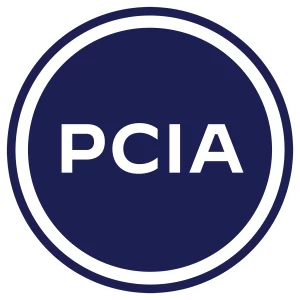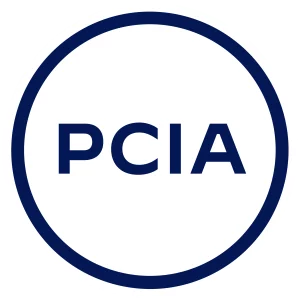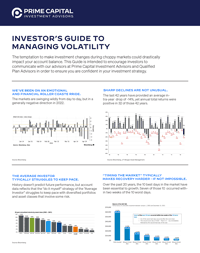The 2023 Mercer[1] CFA Institute’s Global Pension Index recently rated the retirement income systems in countries across the world using the weighted average of the adequacy, sustainability and integrity of the systems.
How did we do? Not so hot. America only earned a C+. That’s right. The U.S. earned a C+ rating, with 63 out of 100 possible points and an overall ranking of 22 out of the 47 countries included in the study.
So, what can be done? We can fix the system for one thing. But we can also take control of our own circumstances. Here are 10 things you can do for yourself before you decide to stop working.
- Budget Wisely/Create A Spending Plan
It’s crucial to develop a retirement budget/spending plan that takes both your desired lifestyle as well as prospective future inflation into consideration. Be realistic about your projected costs and take rising prices for necessities like healthcare, housing, and everyday living costs into account. You’ll be more equipped to modify your spending patterns and make critical financial decisions as inflationary pressures develop if you keep your budget both realistic and flexible.
- Build An Emergency Fund
Having available, liquid cash reserves serves two main purposes: First, you’ll be covered in the event of an unexpected emergency during retirement. Second, you’ll avoid selling stocks or liquidating part of your retirement portfolio at a loss should you need money immediately. The purpose of an emergency fund isn’t to generate a maximum return, but rather have immediate access to money for the unexpected, like car or home repairs, for instance.
- Diversify Your Assets
Consider taking advantage of other options to grow your money for retirement and take advantage of the different asset classes; equities (i.e., stocks), fixed income (i.e., bonds), cash and cash equivalents, real estate, commodities and other alternatives. Depending on the way you structure your investments, you stand to potentially outperform inflation and produce better returns, all of which helps you protect the value of your retirement savings.
Remember that in retirement, the most important thing is to protect your accumulated retirement money and create reliable streams of income from it so that you don’t run out of money someday.
- Manage Debts
If your debt exceeds your assets, you’ll still have a net worth of less than zero no matter how much money you have. The debts you should really focus on are unsecured ones that carry high interest rates such as credit cards or personal loans. These have a tendency to erode your purchasing power and net worth, making it even more challenging to survive during the anywhere from 20 to 40 years you will likely live in retirement.
- Maximize Your Contributions
A wise move is to maximize the contributions you are making to retirement accounts like 401(k)s and IRAs. Maximizing contributions while you are working keeps your retirement funds growing, which affords you the opportunity to get ahead of inflation. Additionally, focus on retirement accounts that provide tax advantages for even better results.
- Maximize Social Security Benefits
For couples, the higher earning spouse is going to have a larger benefit, which is why it generally makes sense for the higher earning spouse to wait as long as possible to claim their benefits. That being said, it may make sense for the other spouse to start their benefits earlier. This allows the couple to strategically design their combined benefits for a longer period of time while still ensuring the largest survivor’s benefit is an option.
- Long Term Care & Life Insurance
One of the costliest retirement planning hazards is neglecting the true costs of long-term care in the event disability, old age, or a catastrophic accident derails your plans for the future by taking away your ability to perform daily living activities on your own. The costs for long-term-care assistance—around $8,000 per month average[2] for a semi-private room—are enough to erode or empty your nest egg, and if you need to qualify for Medicaid, you are required to spend down all of your assets.
Some new forms of life insurance are called “hybrid”—providing a death benefit to your heirs, charity or chosen beneficiaries, or optionally providing coverage for long-term care expenses should you develop the need for care.
- Implement a Plan to Combat Taxes
Taxes are subject to change. Consider utilizing an option that allows you to save for your financial future in a way that you can also reap the rewards of potential tax advantages for the long-term. Depending on your retirement savings plan, you can position your funds to grow in a tax-deferred or tax-free manner, potentially saving you money on the backend.
Remember, you must start withdrawing a portion of the money you have in tax-deferred retirement accounts like traditional 401(k) plans each and every year starting at age 73 and pay ordinary income tax on those withdrawals. Required minimum distributions (RMDs) must be considered in retirement plan calculations so that you can make tax-advantaged decisions and changes now, before you retire.
- Plan for Rising Healthcare Costs
It’s essential to have a relationship with a professional who understands the specifics about Medicare so they can help you sign up as well as review your plan during annual Medicare open enrollment periods.
You must sign up at age 65 unless you work for an employer who offers comparable health insurance to what Medicare provides. Additionally, there is a two-year income look-back at your income tax returns at the time you file which determines your Medicare premium cost—those with higher incomes pay more for life. There may be a way to earn less income before the time of filing that can save you a lot of money in the long run.
If you choose a plan like a Medicare Advantage policy, it’s important to work with a professional to see if the benefits are still advantageous for you compared to the costs each year. There may be a better plan, so don’t just stick with your first choice throughout retirement. You could leave a lot of money on the table that way.
- Seek Out the Experience of a Financial Professional
This can make all the difference in the world. You only retire once, but a financial advisor works with dozens if not hundreds of people to help them retire, and they are familiar with the many risks that you may not understand.
A professional financial advisor can work with you to develop your customized retirement plan, tax strategy, budget, insurance, and investments. Working with a professional will help you clarify the short and long-term goals you have for your retirement dollars, and help ensure that you don’t run out of money.
BONUS TIP:
- Review and Revise Your Plan
A retirement plan is never set-it-and-forget it. It’s critical to periodically assess your retirement strategy and make any necessary modifications. Your financial advisor can assist you during annual or quarterly review and strategy sessions in clarifying and projecting what’s working and what isn’t, how inflation may pose a threat to your specific situation, and how to revise your plan going forward to maximize success despite inflation, new legislation, or the changing economic environment.
If would like more specific information about how to achieve your retirement goals, don’t hesitate to contact Jason Noble, CFP®, RICP®. Jason holds both CERTIFIED FINANCIAL PLANNER™ and Retirement Income Certified Professional® designations and was named number five out of the Top 100 Solo Advisors to Watch in 2023 by AdvisorHub. You can reach him at (843) 743-2926.
Source:
[1] https://www.mercer.com/insights/investments/market-outlook-and-trends/mercer-cfa-global-pension-index/ [2] https://www.genworth.com/aging-and-you/finances/cost-of-care.html/
This article is provided for general information only and is not to be construed as financial or tax advice. It is recommended that you work with your financial advisor, tax professional and/or attorneys when tax planning.
Advisory products and services offered by Investment Adviser Representatives through Prime Capital Investment Advisors, LLC (“PCIA”), a federally registered investment adviser. PCIA: 6201 College Blvd. Suite #150, Overland Park, KS 66211. PCIA doing business as Prime Capital Wealth Management (“PCWM”) and Qualified Plan Advisors (“QPA”).
111323005 MKS





